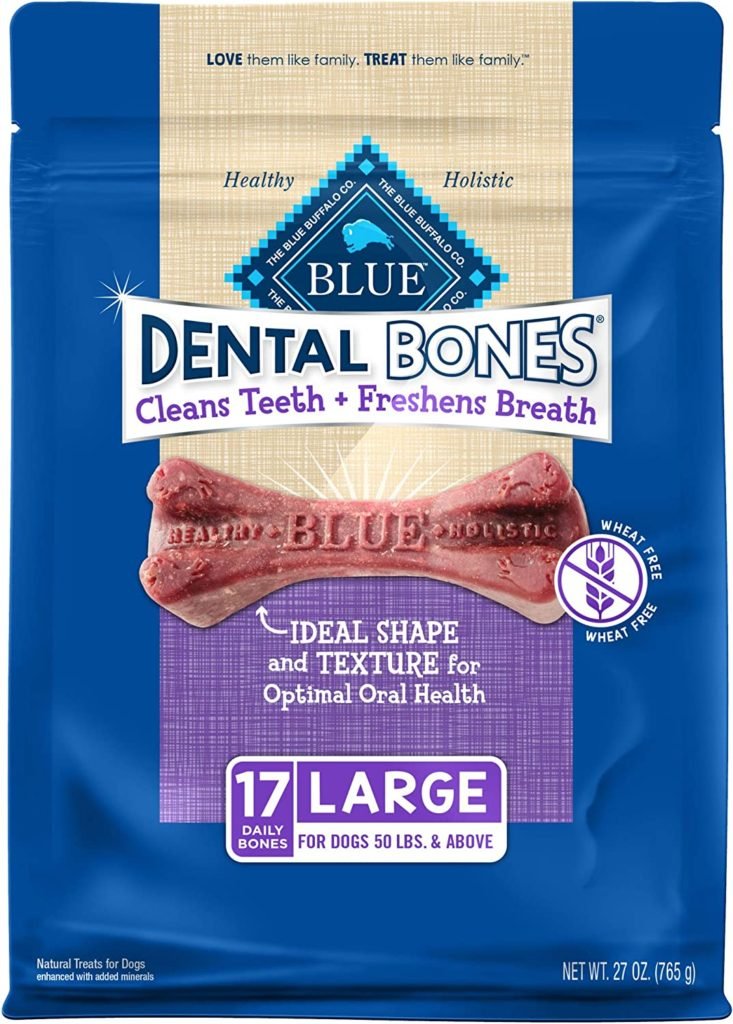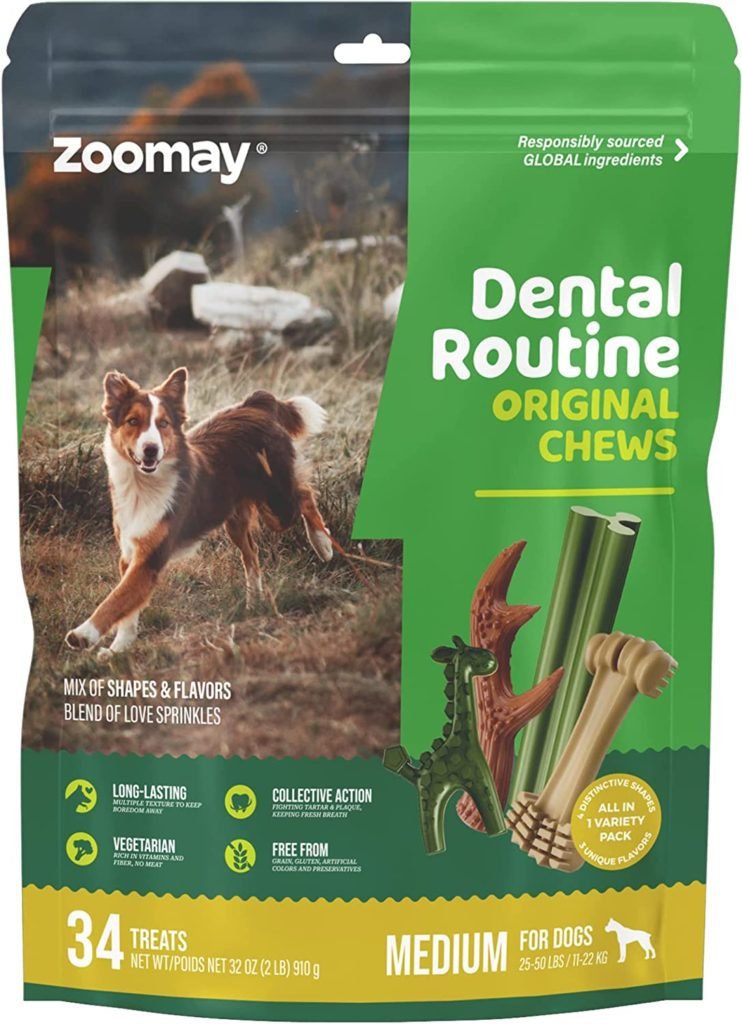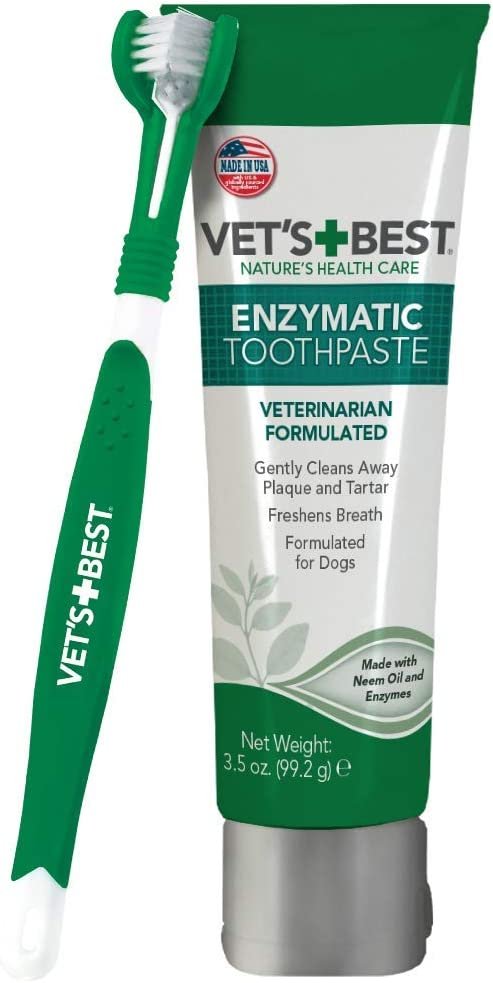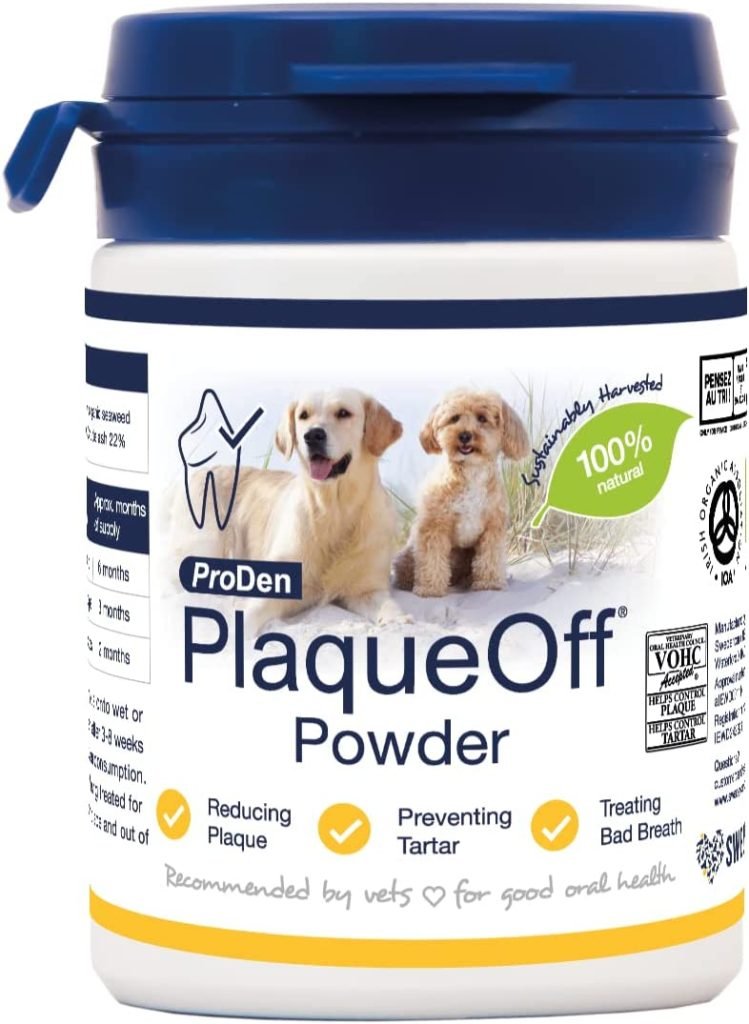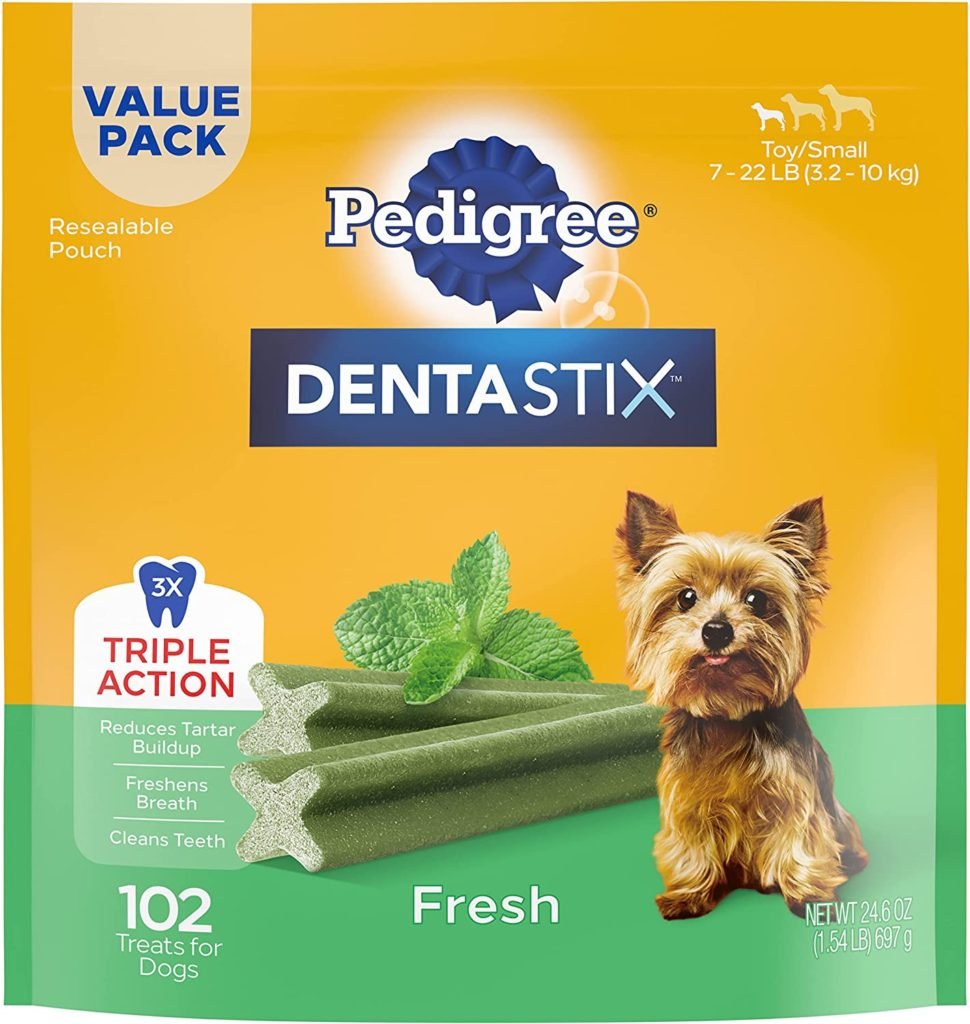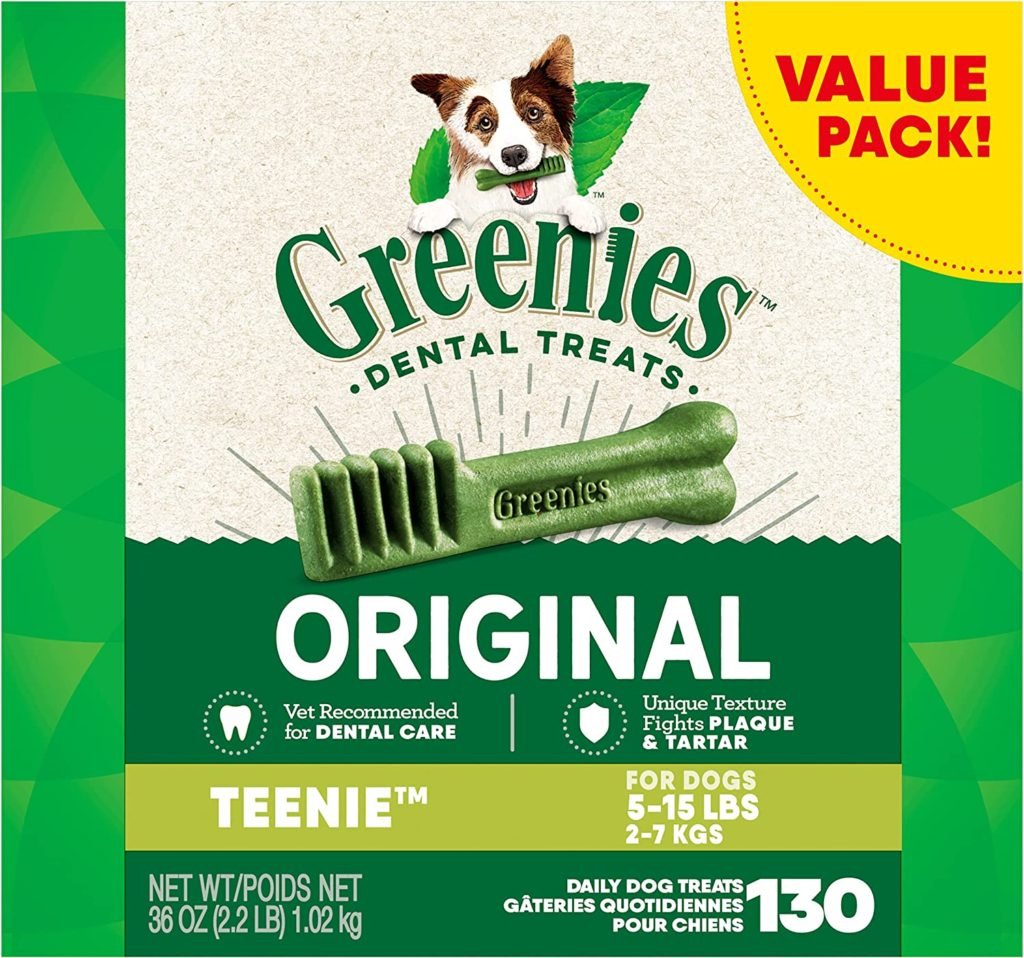Have you ever wondered how to maintain your dogs dental health?
People need to pay attention to dental health as much as they do other things. Dogs may rest easy knowing that they don’t suffer from the same susceptibility to tooth decay as humans.
But be careful with widespread knowledge! Even though a dog’s mouth is cleaner than a human. Dogs might suffer dental issues such plaque and tartar buildup after eating. Other diseases include gingivitis (gums inflammation) or periodontitis (tooth inflammation due to bacterial plaque).
Even though it’s not just about yellow teeth or bad breath (halitosis), dental problems in dogs can cause infections. It causes heart, liver, intestines (such vomiting and diarrhea from eating plaque), kidneys, and even death in dogs.
How to keep your dogs dental health?
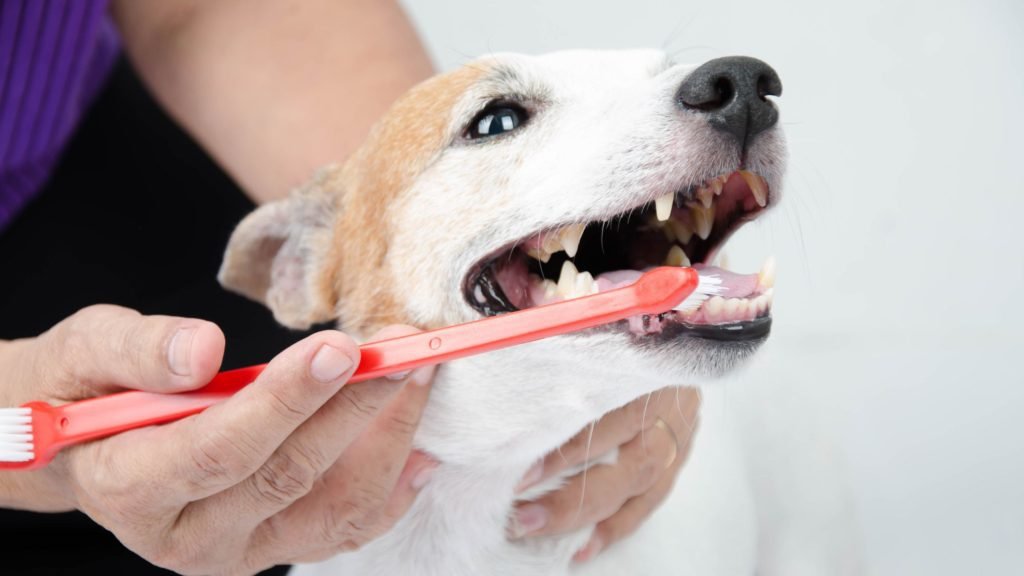
Dry food is better than wet food. If you’re worried about brushing your dog’s teeth causing blood, sweat, or tears. There are other ways to enhance dental health and remove tartar.
A crunchy croquette is better for your dog’s teeth than soft food, as wet food sticks to teeth more quickly.
You can also look for a supplement with properties that control plaque and tartar and help prevent your friend’s bad breath. Remember that you can also add antiseptics to their water or use sprays for dogs’ teeth.
Snacks to maintain your dogs dental health
Snacks are an excellent alternative to prevent plaque and tartar and are the favorite way for dogs:
- They enjoy taking their snacks while cleaning their teeth
- Getting rid of bad breath,
- A good example is ADVANCE’s Dental Care Stick.
- So now you know, when you reward your dog, do it with these healthy bars for them.
You May Also Interest: Distemper in Dogs: Understanding the Symptoms and Prevention
Suggested Products for your dogs dental health
Chew bones and toys to clean teeth
Take advantage of your best friend sucking on toys to brush their teeth without them noticing. Many natural bones and artificial toys could help your dogs dental health, gums and teeth strengthening.
Giving your dog a healthy bone to chew will help remove plaque and improve their teeth.
Although while natural foods can’t substitute expert teeth cleaning or dental care products, they may have benefits.
Hard bread: A small piece can help remove food remnants from teeth.
Apple: Are healthful, freshen breath, and clean teeth (never give the seeds to dogs, they are toxic to them)
Carrot: Another healthy snack that, like apples, helps neutralize bad breath and remove food remnants from their mouth.
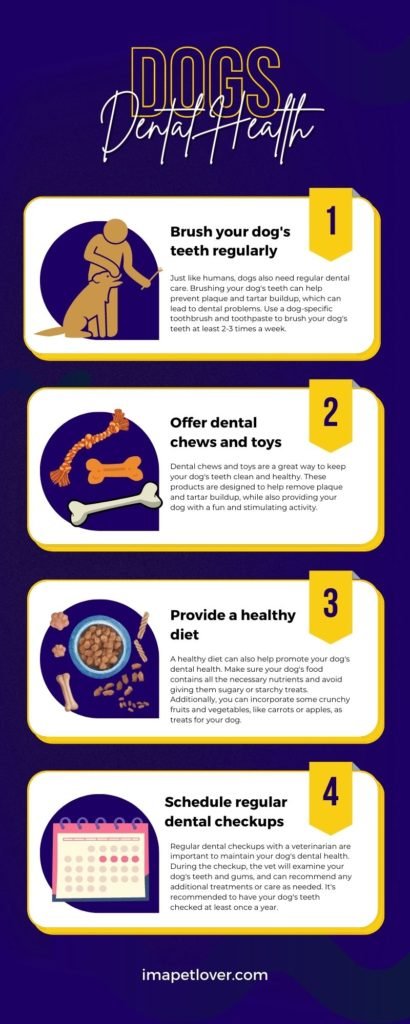
What supplies do I require to clean my dog's teeth?
To properly brush your dog’s teeth, you should use a toothbrush and canine-formulated toothpaste. It’s perfect for cleaning your dog’s teeth regularly, especially the rear and plaque-prone canines and molars. If you cannot brush your dog’s teeth daily, aim to do so thrice a week. Toothpaste flavors like cheese or meat appeal to dogs. Still, you can use water if your dog doesn’t tolerate any of these. Using toothpaste specifically made for dogs is essential, as human toothpaste can be harmful if ingested.
How to clean your dog's teeth?
Once you have the complete set of brush and paste, you’ll wonder how to wash your dog’s teeth.
It is usual for your dog not to favor having their teeth washed at first, but with time and patience, you can make this experience pleasant for both of you.
Choose a moment when your dog is tired because they have done a lot of exercises. That will make them listen to you and stay still during the procedure. Once you are comfortable, the first thing is to lift their lips and calmly start brushing from bottom to top, starting from the gum line. The first times do it cautiously. Start slowly and if the dog gets stressed, abandon the activity even if you haven’t brushed the whole mouth. Little by little, you will increase the brushing time, being able to resort to strategies like wetting a gauze that is then rolled to the finger so that it associates this type of contact. And remember to reward your dog every time they behave well with cuddles and affection. Finally, remember that the veterinarian should clean deep teeth at least once a year.


